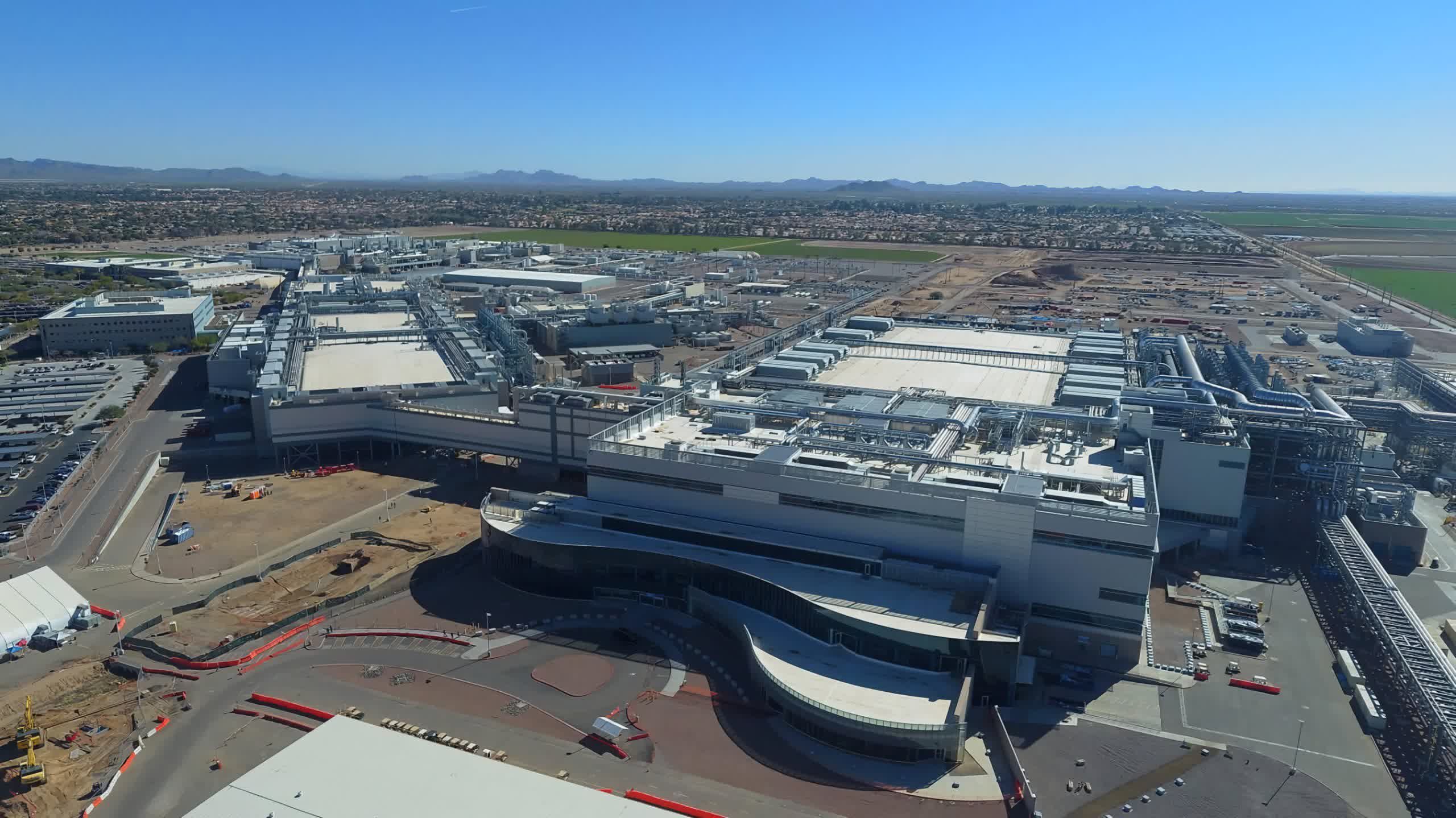What just happened? Intel is set to become one of the biggest beneficiaries of the CHIPS Act after the White House said it had reached preliminary terms with Team Blue to provide it up to $8.5 billion in direct funding. Intel will also receive up to $11 billion in low-interest loans and a 25% investment tax credit on up to $100 billion of capital investments.
The CHIPS Act is designed to boost semiconductor manufacturing in the US and improve innovation in the country, especially with the threat of a Chinese invasion constantly hanging over Taiwan, home of TSMC.
According to a White House statement, the $8.5 billion in direct funding will be used to support Intel's capacity and capability expansion in Arizona, New Mexico, Ohio, and Oregon. The projects are estimated to create over 10,000 manufacturing jobs and nearly 20,000 construction jobs.
In addition to the $8.5 billion in direct funding, $11 billion in long-term, low-interest loans is being offered to Intel, part of the $75 billion in loan authority provided by the CHIPS and Science Act. The money will be used to further expand Intel's production capabilities and help build new fabs.
Intel says it will invest $100 billion in chip manufacturing over the next five years. The company is able to claim an Investment Tax Credit from the Department of the Treasury that would allow it to write off 25% of that $100 billion investment.
The $8.5 billion in direct funding will be distributed in portions and should start to arrive later this year. It is subject to Intel reaching certain "milestones," wrote the White House. President Biden will announce the deal at Intel's Ocotillo campus in Chandler, Arizona, during a ceremony today.
The CHIPS money will go toward the construction of two new leading-edge logic fabs for Intel's 18A node and the modernization of one existing fab in Chandler, Arizona. Two fabs in Rio Rancho, New Mexico, will be converted into advanced packaging facilities. Two leading-edge logic fabs will be constructed at Intel's New Albany, Ohio, campus, and technology development facilities at Hillsboro, Oregon, will be expanded and modernized.
The CHIPS Act provides $52 billion in subsidies for domestic semiconductor production. US Commerce Secretary Gina Raimondo said the money will help the United States meet its goal of ensuring that 20% of the world's most advanced chips are produced in the US by the end of the decade. Raimondo said that figure stood at 0% today.
The White House announcement marks the largest CHIPS Act funding to date. Intel CEO Pat Gelsinger said the amount was "about" what the company expected to receive.

